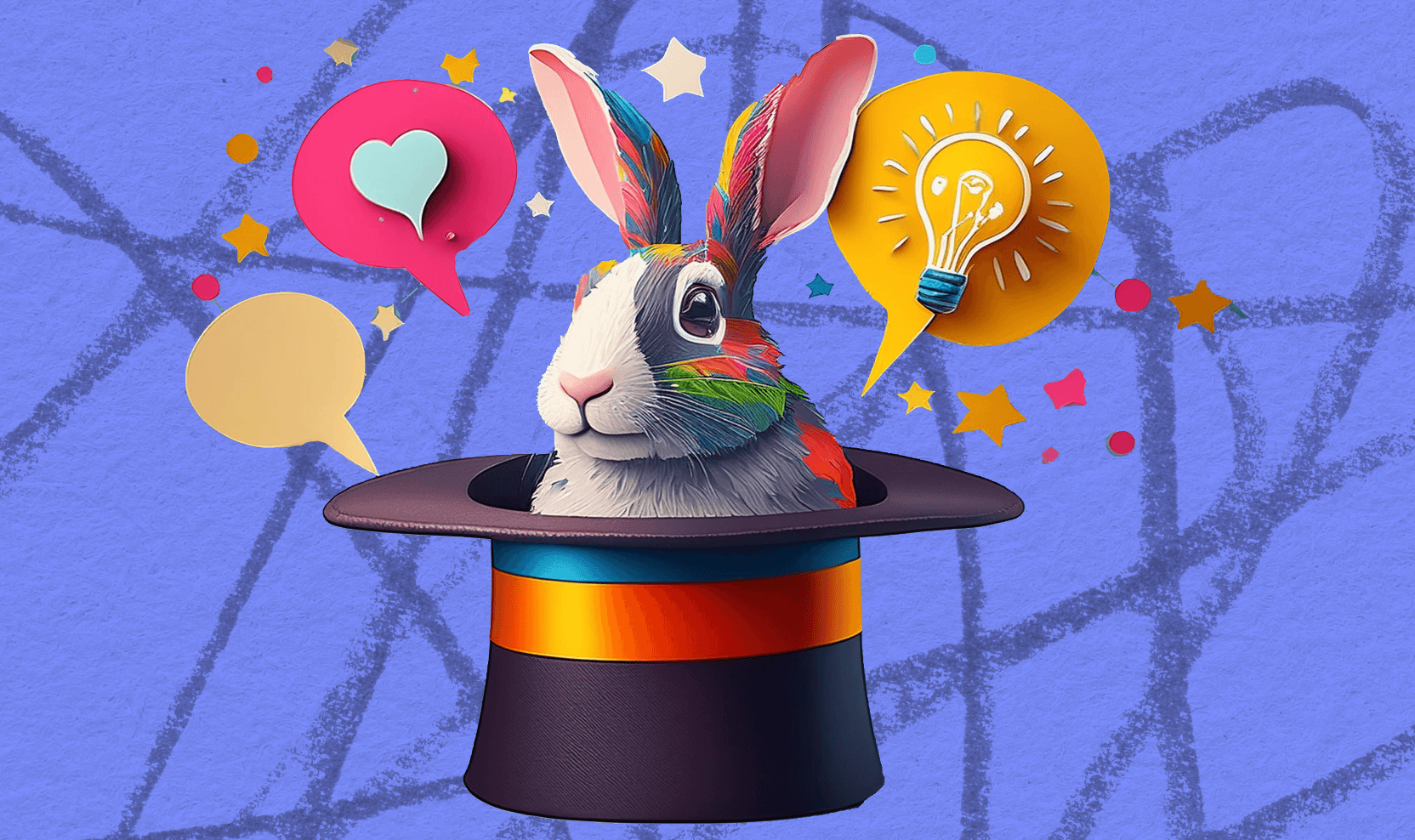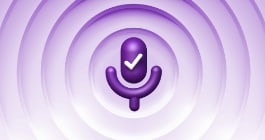Unlock more with the Adobe Podcast Premium plan 
- Video support for MP4, MOV, and more
- Bulk upload files for enhancement
- Adjust strength for a more natural sound
- Enhance up to 4 hours a day, files up to 1 GB
- No download limits on Studio projects
- Download original recordings, speaker-separated
- Customize audiograms and captions with themes
- Upload custom backgrounds for audiograms
- All Premium features for design
Enhance Speech
Studio
Design with Adobe Express Premium
Creative tips for naming your podcast & selecting topics
How to pick a podcast name and content that will stand out.

Last updated: April 7, 2025
Author: Harmony Jiroudek, Product education & community manager
Deciding on a name for a podcast may seem like a simple task, but there are valid reasons to spend time coming up with something good—many who find themselves drawn to podcasting and jump right into creating content don’t get very far, seeing as 90% quit after publishing just 3 episodes.
Now, is this because most people who jump into podcasting come up with bad names? Yes and no. Giving your podcast a good name can help lead to a more successful program in the long run. We’ll break it down for you.
Your Name is Your Brand
Picking a meaningful name for your podcast is a significant part of brand-building strategy, much like choosing a name for any other product or service on the market.
You don’t have to go as hard as big businesses and build an iron-clad brand identity, but you should at least think about a few key things such as:
- A name should be topical and memorable. Avoid names that could compete with other brands or podcasts, and use natural spelling when possible (note: unique names and odd spellings work, they’re just typically harder for people to find early on). If you don’t have a recognizable name attached to your show (like the current #1 podcast, The Mel Robbins Podcast), aim for something related to what you would consider the mission of your show. For example, Pod Save America is a show about politics meant to break down the week’s news. The title is both a pun and a plea tied into what the hosts believe their work is doing.
- Think of the name visually. You may need a few visual elements to supplement your podcast brand like a logo, favicon, and other imagery. A good logo and other branded elements can help sustain a consistent identity which eventually works to help others associate with your brand beyond just the podcast. A great example of this is Song Exploder—a show that began as a podcast but seamlessly also became a Netflix show. Their recognizable visuals easily translated across both mediums.
- Consider how your audience will react. Striking a balance between what you personally like will be different for every podcaster, which is why learning about your target audience is helpful for those serious about earning.
Of course, not everyone considering podcasting is looking to capitalize on the medium’s earning potential, but as a new hobby instead. So, if you have no real expectations and want to name your podcast something weird, you have our blessing—plus, strange things often have the benefit of being memorable.
6 Tips for Naming Your Podcast
If you’re struggling coming up with a good name, your first order of business should be to do something else—“breakthroughs” usually come after you rest and focus shifts, like when you take a shower or cook dinner.
But before you go, check out these quick tips for naming your podcast.
1. Dial in on your podcast’s core purpose
During a podcast’s initial planning stages (and again during pre-production), you need to confront your podcast’s goals. Once you have a clear core purpose in mind, you’ll be well-equipped to decide on a name—your purpose doesn’t need to be super specific, but it should have at least a general focus.
2. Brainstorm ideas that will resonate with your audience
Niche podcasts can get away with obscure references for certain subjects, but not all are suited for this naming approach. Coming up with something clever is great, but a name that is both clever and memorable is a winning combination.
3. Align all podcast names consistently
Beyond just your podcast’s name, there are other naming conventions to keep in mind. If you stick with it, you’ll eventually be formally titling episodes (and series, when applicable) along the way.
For example, My Brother, My Brother & Me have adopted the title format of “SHOW ACRONYM, EPISODE #, TITLE,” which looks like “MBMBaM 747: How You 'Dune, a Friends-Fremen Podcast.” Whereas Serial, a limited series, just does “EPISODE TITLE - EPISODE #”: “The Good Whale - Ep. 2.”
Whatever your show is about, ensure you use titles that make sense with the rest of your program, especially when content is part of a collection or series on a specific topic.
4. Stay flexible with future topics
It’s fairly common for those who don’t plan out their podcast to jump in thinking they have a year’s worth of knowledge to share on a topic when they really had about four and a half hours. Keep your mind on subjects you can logically flow to when there’s limited discussion to be had for your topics on deck.
5. Test your podcast name and topics
Ask your friends and family what they think about your name and content ideas, then take their feedback seriously, especially when they’re interested in the topics you plan to discuss.
6. Make sure you can plant your flag
Once you have a few ideas for a name, make sure you run some internet searches for that title. Do any other brands with similar names exist? Do any other podcasts have similar names? Can you reserve the handles on social media? This is an easy way to whittle down a list and make sure your show can be both easy to find and memorable.
Keep Your Phone Charged or Pen and Paper Handy While Deciding a Podcast Name
You can’t force genius, but you can clean your gutters, bake a bunch of muffins, or fold and actually put away the laundry you’ve been re-tumbling in the dryer for the past couple of days.
Whatever approach you use is up to you, but try to land on a name that’s memorable and ideally something clever. This combination doesn’t guarantee success, but a good name (and solid brand strategy) can help attract, maintain, and grow audiences for good podcasts.
About the author: Harmony leads product education and community for Adobe Podcast. As a musician and educator, she brings a human-centered approach to helping creators learn, connect, and grow with powerful audio tools. Her passion lies in making creative technology feel accessible, empowering, and inspiring.



